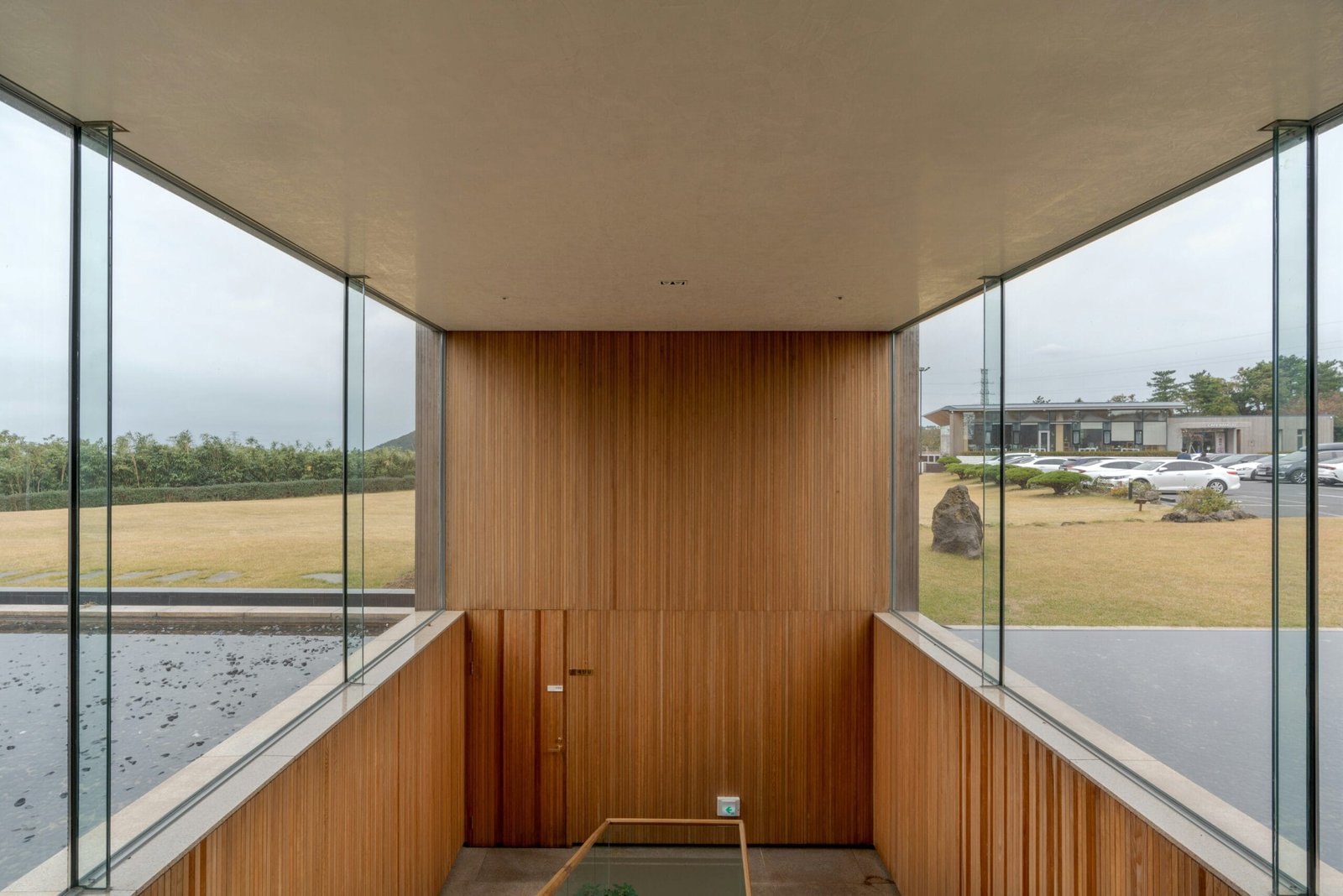
Introduction
Traveling has become an integral part of our modern lives, offering opportunities for exploration, adventure, and cultural exchange. However, the impact of tourism on the environment has raised significant concerns over recent years, leading to a growing emphasis on sustainable travel. Sustainable travel focuses on minimizing the negative effects of tourism while maximizing benefits to local environments and communities. As a result, the choice of accommodation can play a crucial role in promoting sustainability during our travels.
Eco-friendly hotels are designed to reduce carbon footprints, often incorporating green practices such as using renewable energy sources, recycling programs, and water conservation measures. By opting for these accommodations, travelers contribute to efforts aimed at preserving natural habitats, mitigating climate change, and promoting biodiversity. For instance, eco-friendly hotels frequently employ sustainable building materials and practices, ensuring that their operations have minimal impact on the surrounding ecosystem.
Moreover, selecting eco-conscious lodging supports local communities, fostering economic development while encouraging environmental stewardship. The income generated from eco-friendly hotels often goes directly to local artisans, farmers, and small businesses, creating a symbiotic relationship that benefits both visitors and residents. Additionally, these establishments often provide guests with opportunities to engage in eco-tours, wildlife conservation projects, and community cultural events, deepening their connection to the region they are visiting.
As the desire for responsible travel continues to rise among tourists, it is essential to recognize the importance of making informed choices regarding accommodations. This guide aims to illuminate the various eco-friendly hotels available in Jeju, showcasing how these options align with sustainable travel principles. By choosing to embrace sustainability in travel, we can collectively contribute to a healthier planet and secure a more promising future for generations to come.
The Allure of Jeju Island: An Overview of Its Natural Beauty
Jeju Island, often referred to as the “Hawaii of South Korea,” is renowned for its stunning natural beauty that attracts millions of visitors each year. This volcanic island, located off the southern coast of the Korean Peninsula, is a UNESCO World Heritage Site, celebrated for its unique ecosystems, magnificent landscapes, and cultural heritage. The island’s formation is attributed to volcanic activity, resulting in dramatic landforms such as Hallasan Mountain, which stands as the highest peak in South Korea. This dormant volcano is surrounded by a national park that harbors diverse flora and fauna, making it an ecological treasure.
The breathtaking scenery of Jeju Island includes its pristine beaches, such as Hyeopjae and Jungmun, which are characterized by clear turquoise waters and golden sands. These coastal areas are perfect for eco-conscious tourists looking to engage in sustainable activities, like beach clean-ups and snorkeling experiences that respect marine life. Beyond the beaches, Jeju is home to Jeongbang and Cheonjiyeon Waterfalls, where visitors can witness the dynamic beauty of nature, creating a serene atmosphere that resonates with those who prioritize sustainability in travel.
Moreover, the island boasts an array of endemic species, both terrestrial and maritime, that thrive in its diverse microclimates. From the lush green temperate forests teeming with wildlife to the arid landscapes of lava rock formations, Jeju Island offers an intriguing contrast that enhances its allure. The coexistence of natural beauty and cultural significance is palpable, as local traditions and eco-friendly practices are deeply intertwined with the island’s identity. This characteristic makes Jeju an ideal destination for eco-friendly tourism, where visitors can immerse themselves in its natural wonders while supporting conservation efforts and sustainable living.
Identifying Eco-Friendly Hotels: What Makes Them Stand Out
When selecting an eco-friendly hotel in Jeju, it is essential to understand the traits that distinguish these establishments from conventional accommodations. Eco-friendly hotels prioritize sustainable practices that minimize their environmental impact and promote responsible tourism. One of the primary characteristics of these hotels is their commitment to using energy-efficient technologies. This includes the installation of solar panels, energy-efficient lighting, and smart climate control systems, which collectively reduce the hotel’s energy consumption.
Water conservation measures also play a crucial role in identifying eco-friendly hotels. These accommodations often incorporate low-flow fixtures, rainwater harvesting systems, and greywater recycling, thereby ensuring minimal water wastage. Additionally, many eco-conscious hotels opt for sustainable landscaping, using native plants that require less irrigation and maintenance, further contributing to water conservation efforts.
Certifications serve as an essential guide for travelers when selecting eco-friendly accommodations. Various organizations offer certification programs for hotels that meet specific environmental standards. Some notable certifications include the Green Key Eco-Rating Program and LEED (Leadership in Energy and Environmental Design). Hotels awarded such certifications must undergo rigorous evaluations of their sustainability practices, making these indicators relatively reliable for discerning eco-friendly options.
Moreover, incorporating local and organic products is another hallmark of eco-conscious hotels. Not only do they support local economies by purchasing from nearby suppliers, but they also provide guests with fresh, organic food options. This commitment to quality extends to the use of eco-friendly cleaning products and personal care items, ensuring that guests experience minimal exposure to harmful chemicals.
In conclusion, eco-friendly hotels in Jeju stand out through their sustainable practices, energy-efficient technologies, and commitment to conserving natural resources. By focusing on key certifications and local sourcing, travelers can make informed choices about their accommodations, ultimately contributing to a greener planet.
Sustainable Practices: How Hotels Are Making a Difference
In recent years, eco-friendly hotels in Jeju have gained recognition for their commitment to sustainability through various innovative practices. One crucial aspect of these practices is waste management. Hotels are implementing comprehensive waste reduction strategies, which include recycling programs and composting organic waste. This not only minimizes landfill contributions but also encourages guests to participate in efforts to reduce their ecological footprint. By promoting a culture of sustainability, these hotels emphasize the importance of responsible consumption among visitors.
The adoption of renewable energy sources plays a pivotal role in the sustainable operations of eco-friendly hotels. Many establishments in Jeju are transitioning to solar or wind energy to power their facilities. This shift not only reduces reliance on fossil fuels but also significantly lowers greenhouse gas emissions. Furthermore, hotels are optimizing energy usage through energy-efficient appliances and smart building technologies, which enhance sustainability without compromising comfort for guests.
Responsible sourcing of materials is another fundamental practice embraced by eco-friendly hotels in Jeju. By utilizing locally sourced products, from furniture to food, these hotels support local businesses and reduce carbon footprints associated with transportation. Additionally, the integration of environmentally friendly materials in construction and renovation contributes to healthier indoor environments while minimizing environmental impacts.
Community engagement is also at the forefront of sustainable practices adopted by many hotels in Jeju. Initiatives such as cultural workshops and local tours aim to support the region’s heritage and economy. By fostering connections between guests and the local community, eco-friendly hotels encourage a deeper appreciation for Jeju’s rich cultural history and promote responsible tourism. These sustainable practices demonstrate the collective effort of hotels to harmonize hospitality with environmental stewardship and cultural preservation.
Natural Decor: Creating Harmonious Spaces with Nature
The design philosophy of eco-friendly hotels in Jeju is centered around a commitment to sustainability and the seamless integration of natural elements within their interiors. By emphasizing natural decor and materials, these hotels foster an environment that aligns with the island’s breathtaking landscapes, creating a tranquil and immersive experience for guests. Incorporating local art, sustainable furniture, and biophilic design principles are key aspects of this design approach.
Local art plays a pivotal role in setting a culturally rich tone within eco-friendly hotels. By showcasing works from local artists, hotels not only support the community but also provide guests with a glimpse into Jeju’s unique heritage and culture. This can range from paintings and sculptures to textiles that reflect the island’s natural beauty. Such pieces enhance the aesthetics of the spaces, allowing visitors to connect with the region in a meaningful way.
Another significant aspect of creating harmonious spaces lies in the use of sustainable furniture crafted from eco-friendly materials. Many eco-conscious hotels opt for furnishings made from reclaimed wood, bamboo, or recycled materials, which not only minimize environmental impact but also add a distinct rustic charm to the decor. This alignment with nature extends to textile choices as well, favoring organic cotton, linen, and wool that foster a comforting, warm atmosphere.
Biophilic design elements, which aim to connect occupants with nature, are essential in these eco-friendly hotels. Large windows that invite natural light, indoor plants that purify air quality, and water features that create a soothing ambiance are just some of the strategies employed. By immersing guests in these organic settings, eco-friendly hotels in Jeju offer an inviting retreat that encourages relaxation and well-being, harmonizing human experiences with the inherent beauty of the environment.
Organic Dining: A New Era of Culinary Experiences
In recent years, the emphasis on organic dining has gained significant traction within the hospitality sector, particularly in eco-friendly hotels in Jeju. This approach not only aligns with sustainable practices but also enhances the overall culinary experience for guests. By prioritizing farm-to-table practices, these hotels ensure that their food sourcing is both local and seasonal, which diminishes the carbon footprint associated with food transportation. The selection of ingredients directly from local farms boosts the local economy while providing fresh, nutritious options to diners.
One of the primary benefits of organic dining is the health-conscious nature of the meals offered. Many eco-friendly hotels in Jeju are now integrating traditional Korean cuisine with modern, health-focused approaches. This innovation allows for an authentic gastronomic experience without compromising nutritional value. Ingredients such as locally sourced vegetables, free-range meats, and sustainable seafood are staples in the menus of these establishments. This practice not only tastes better but also supports the principles of organic agriculture, promoting biodiversity and minimizing the use of toxic pesticides.
Additionally, notable restaurants within these hotels often feature chefs who are passionate about sustainability. They craft menus that celebrate the bounty of Jeju’s landscapes, transforming simple ingredients into exquisite dishes that tell a story of the region’s culture and natural resources. Dining experiences vary widely, from casual to fine dining, making it possible for every guest to enjoy an organic meal that suits their preferences. Some eco-friendly hotels even provide culinary classes or workshops that allow guests to engage with the organic dining philosophy firsthand, thus enriching their overall experience.
The integration of organic dining in hotels not only enhances guest satisfaction but also sets a precedent for responsible culinary practices. This growing trend indicates that the hospitality industry is embracing sustainability, providing a model for how culinary arts can harmoniously coexist with nature.
Top Eco-Friendly Hotels to Consider in Jeju
As travelers become increasingly conscious of their environmental impact, the demand for eco-friendly accommodations has surged. Jeju Island, known for its striking natural beauty, offers a range of hotels committed to sustainability. Here is a curated list of some of the top eco-friendly hotels you can consider for your stay in Jeju.
One of the notable options is the Ramada Plaza Jeju Hotel. Strategically located near the beautiful coastal scenery, this hotel implements several sustainable practices, such as energy-efficient systems and waste recycling programs. Guests can enjoy a stunning ocean view, as well as amenities that include a saltwater swimming pool and organic dining options. Prices begin at approximately $160 per night, making it a reasonable choice for eco-conscious travelers.
Another excellent choice is the Jeju Eco Suites. This establishment is built with sustainable materials and gives preference to renewable energy sources. Located on the serene outskirts of Jeju, it provides a tranquil retreat surrounded by lush landscapes. Many guests appreciate the hotel’s commitment to local artisans, from decor to food. Rates start at $120, and the hotel features convenient booking options online.
If you’re looking for a uniquely immersive experience, consider the Herb Island Resort. Nestled within a botanical garden, this resort emphasizes the importance of organic living by offering farm-to-table dining experiences. Visitors can also partake in various eco-educational activities. The starting price for accommodation is about $140 per night, providing excellent value for such an engaging experience.
Each of these eco-friendly hotels not only enhances guest experiences but also supports local communities and environmental conservation. When planning your visit to Jeju, consider these establishments for a sustainable yet enjoyable vacation. Remember to check for the latest deals and availability to secure the best rates for your desired stay.
Activities and Attractions: Embracing Nature in Jeju
Jeju Island, renowned for its stunning landscapes and vibrant ecosystems, offers a plethora of eco-friendly activities and attractions that invite travelers to engage with nature in a sustainable manner. One of the most prominent activities includes hiking along the numerous trails that wind through the island’s volcanic terrain. Trails such as Hallasan National Park’s ascent to Hallasan Mountain not only provide breathtaking views but also present an opportunity to learn about the unique flora and fauna of the region.
Another must-visit destination is the Jeju Olle Trail, a network of walking paths that circumnavigate the island. Spanning over 400 kilometers, these trails traverse coastal cliffs, scenic beaches, and lush forests, allowing hikers to experience the natural beauty of Jeju while promoting eco-tourism. The Jeju Olle Foundation actively supports conservation efforts, encouraging visitors to respect the environment during their explorations. Additionally, various local organizations offer eco-tours that focus on environmental education and conservation practices, providing participants with insights into the island’s biodiversity.
For those interested in marine life, exploring the underwater world through eco-friendly diving or snorkeling trips is a rewarding experience. Numerous operators conduct responsible tours that prioritize environmental protection, ensuring minimal impact on the delicate ecosystems. In addition, the island is home to several nature reserves, such as the Seongsan Ilchulbong Peak, where visitors can appreciate the monumental geological formations and the rich biodiversity that thrives in this UNESCO World Heritage site.
Engaging in conservation programs, such as beach clean-ups or tree planting initiatives, allows travelers to leave a positive impact on the environment while fostering a deeper appreciation for the natural surroundings. By participating in these eco-friendly activities and attractions, visitors to Jeju can create lasting memories while simultaneously contributing to the preservation of this beautiful island.
Conclusion: The Future of Travel and Sustainability
As we move forward, the intersection of travel and sustainability will become increasingly crucial in shaping our planet’s future. Eco-friendly hotels in Jeju serve as a prime example of how the hospitality industry can adapt to environmentally responsible practices, ensuring that nature is preserved for future generations. The active engagement of travelers, hotels, and local communities is now more essential than ever. This collective responsibility not only contributes to minimizing our carbon footprint but also enhances the overall travel experience through meaningful interactions with nature.
Travelers, armed with the knowledge of eco-friendly choices, can make informed decisions that support sustainable practices while exploring the breathtaking landscapes of Jeju. By opting for hotels that prioritize sustainability, such as those that utilize renewable energy, implement waste reduction strategies, and participate in local conservation efforts, visitors play a pivotal role in fostering a greener travel ecosystem. In turn, these responsible choices can motivate hoteliers to further innovate and embrace sustainable practices, creating a positive feedback loop that benefits all stakeholders.
Moreover, local communities possess a wealth of knowledge and cultural heritage that, when integrated into the tourism experience, enrich the journey for travelers. By collaborating with local residents and supporting small businesses, travelers help to create a sustainable economic model that maintains the essence of Jeju while ensuring that natural resources are safeguarded. Ultimately, the future of travel is contingent on our collective choices and actions. By embracing eco-friendly travel options, we can ensure that the stunning beauty of Jeju remains intact and accessible for generations to come.




